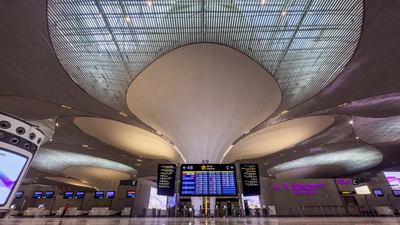Hyderabad: The Telangana government has formally submitted the Detailed Project Report (DPR) and all required documents for the proposed Phase-2(B) expansion of the Hyderabad Metro Rail project to the Union government.
The move follows chief minister A Revanth Reddy’s recent meeting with Union minister for Housing and Urban Affairs, Manohar Lal Khattar, in New Delhi, where he highlighted the strategic significance of the project.
The Phase-2(B) expansion, approved by the Telangana Cabinet, envisions extending the metro network by 86.1 km at an estimated cost of Rs 19,579 crore. The proposal outlines the construction of three new corridors aimed at improving connectivity to key areas in and around the city.
Three new corridors proposed
The DPR includes the following metro corridors:
– RGIA (Airport) to Bharat Future City (Skills University): 39.6 km at Rs 7,168 crore
– JBS to Medchal: 24.5 km at Rs 6,946 crore
– JBS to Shamirpet: 22 km at Rs 5,465 crore
These corridors are expected to enhance public transportation infrastructure and cater to growing urban transit demands in rapidly developing zones.
Funding model and partnerships
The project is proposed as a joint venture (JV) between the central and state governments, similar to the earlier submitted Phase-2(A) project, which covered 76.4 km across five corridors.
As per the Union government’s JV norms, the funding structure for Phase-2(B) will include:
– Rs 5,874 crore (30%) from the Telangana government
– Rs 3,524 crore (18%) from the central government
– Rs 9,398 crore (48%) as debt from international financial institutions
– Rs 783 crore (4%) through a public-private partnership (PPP) component
Awaiting central approval
Hyderabad Metro Rail Limited managing director NVS Reddy confirmed that the complete documentation has been submitted and that the State is now awaiting formal approval from the Union government.
The expansion is expected to significantly boost urban mobility and support the economic growth of emerging corridors, including access to the airport and proposed skill development hubs.






